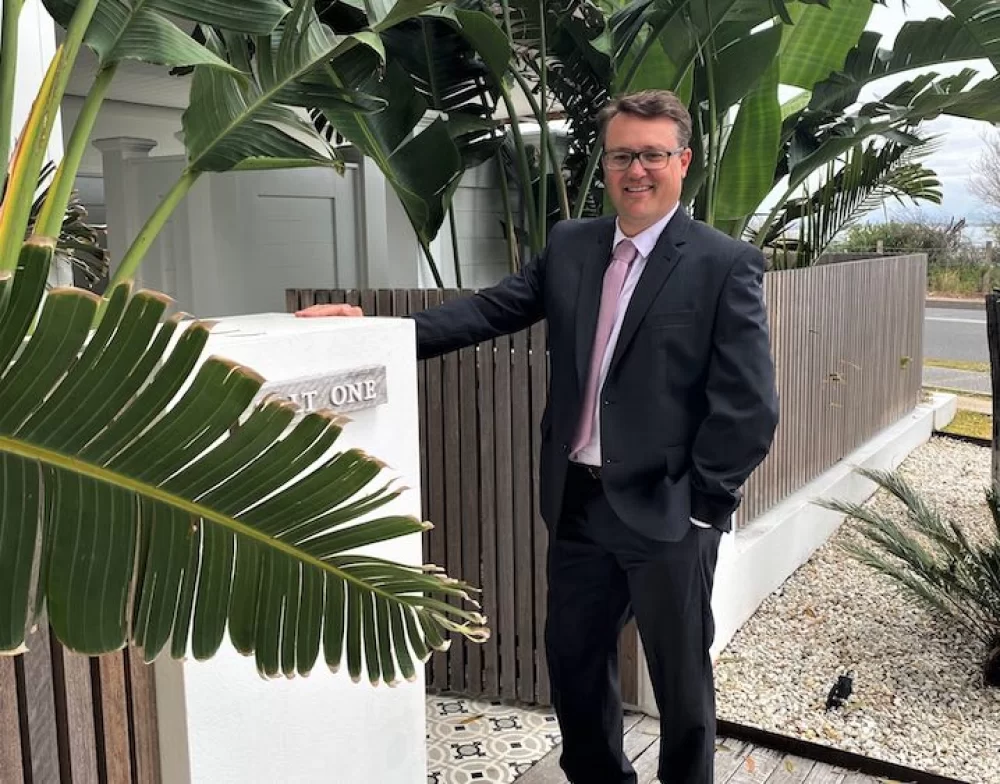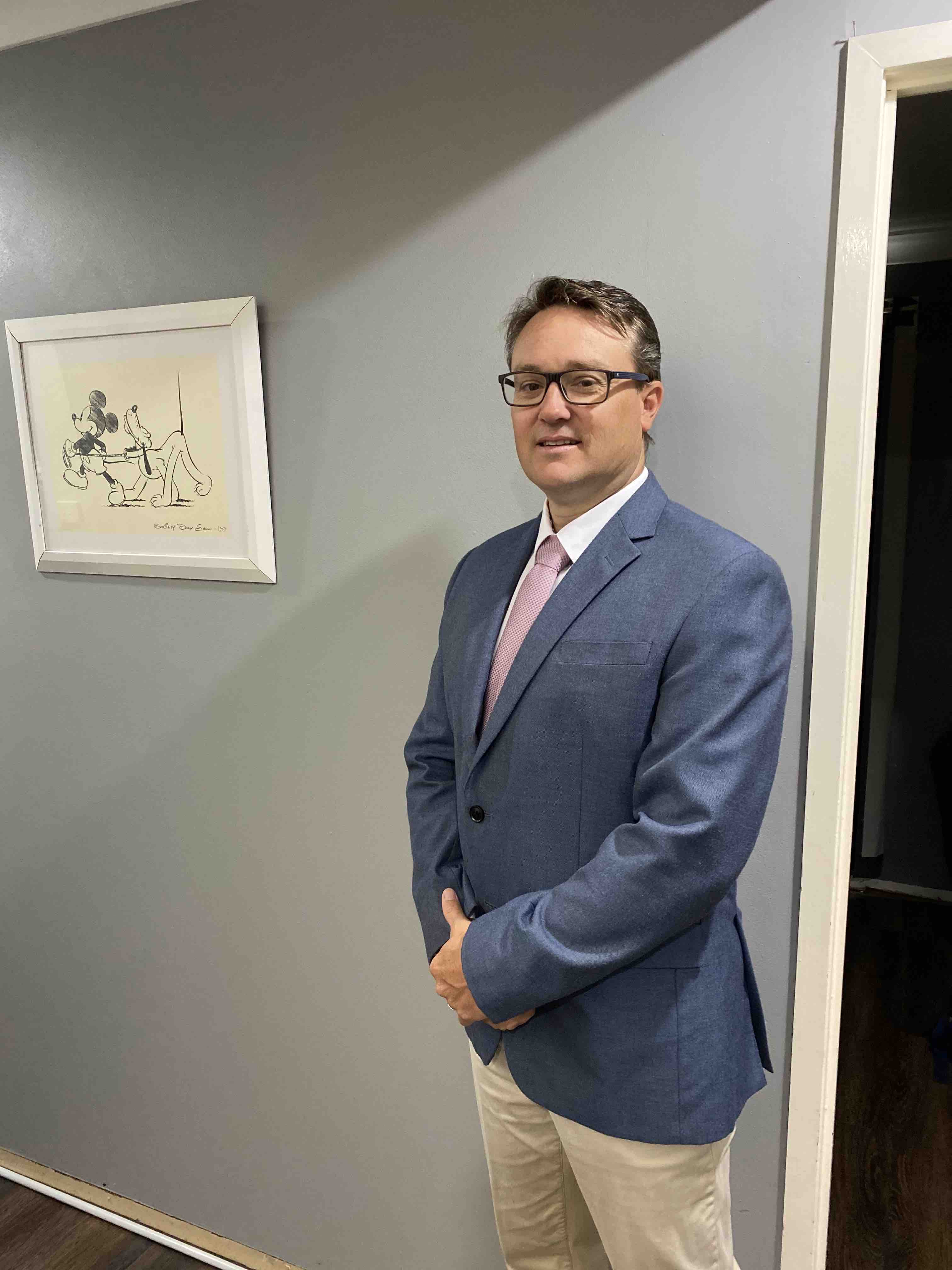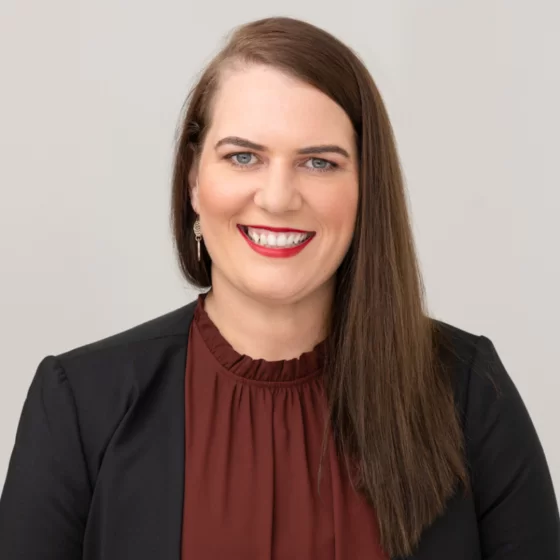Is the Tourism Industry Bouncing Back?

Is the tourism industry bouncing back?
Australians love to travel. Our country is dotted with accommodation that range from 10 rooms to multi-storey CBD locations. In response to the Covid pandemic, many businesses faced government-enforced restrictions. With a freeze on overseas travel, the number of tourists and business travellers entering the country dwindled. Conferences, weddings and events basically halted with a limit on people at gatherings. The enforced fines made most businesses in the hospitality and tourism sector freeze and rethink their operations. Motels for sale and hotels for sale stalled as people tried to figure out how long this pandemic would last.
We spoke with Matt Davidson from Tourism Property based in Wollongong NSW. A specialist business broker focused on accommodation businesses valued from $5m to $25m. With 25 years of experience in the tourism industry, he has a wealth of knowledge that is valuable to business owners, investors and prospective buyers.
Background
Vanessa: So, Matt, tell me a bit about your background. You started out on a resort in Dunk Island; what is it that attracted you to the tourism industry?
Matt: Yes, Dunk Island, that’s right. To be honest, I was more attracted to the water skiing than the tourism industry.
I actually started there as Kids Club Supervisor, however in my four years on the island I set about learning the trade and very quickly found a love for the service and hospitality side of things. It was an amazing lifestyle, I worked really hard to learn everything there was to know about hospitality.
That was 1996, so we’re going on 25 years now. That was the start of my career, I’d found what I was supposed to be doing and I’ve just built from there. I also met my wife Kellie on the island (ok, I employed her) and we moved to Wollongong after the 2000 Olympics to start a family.
Vanessa: So you worked in hotel management then transitioned to be a business broker?
Matt: My first company, “2T” was a startup in 2005 with Craig Hardy, also ex Best Western. Over the course of 10 years we consulted to developers who were building hotels. It was really successful and we ended up with, I think, 14 hotels under management and various forms of consultancy - in the 50 to 150 room space. We employed a heap of staff and were racing around the country. My role was to keep expanding the company, so we were constantly out there looking at deals, looking at what was for sale, who was selling and how it was done. I became really interested in the hotel broking process and felt there was a gap there to improve service in that same sort of motel - that 30 plus room motel and the rest is history.
Vanessa: So you specialize in tourism. Do you think it is important for a broker who is in a specialized field, to have that history?
Matt: Absolutely! That’s really how I’ve built the business - on credibility. We generally don’t sell businesses below $4m, so you’re working with a vendor who often has considerable business and investing experience - they’re savvy and they pick if you don’t know what you’re on about. With Graeme Sutherland and myself, between us we have over 50 years of hotel management experience. That in itself is not enough to be a great broker, although it’s certainly helpful.
Where are you focused?
Vanessa: Do you mainly focus in New South Wales?
Matt: We’re licensed in NSW and ACT. We are in that middle regional market, the $3m to $25m. We add a lot of value to that, say $10m asset. You can’t sell an asset like that on hopes and dreams - there’s a lot more substantial understanding required and buyers expect that too. We generally deal with a very sophisticated buyer – moteliers and hoteliers are often not interested in other types of investments, so we really have to be on the ball.
Vanessa: Let’s say someone is new to the industry. Is there anything that they should do before buying that business?
Matt: Great question. Yes, there is training that’s necessary but not all that readily available. Motel businesses as a leasehold are the cheapest way to be in the industry, but it’s far more expensive to purchase than say a cafe or a hairdresser business. What I’ve found since my Best Western days back in 2002, is there are a lot of new participants in the tourism industry, some of whom probably underestimate what it takes to actually run a motel. If you’re in a small business, a “mum and dad” operation, you will find yourself doing an awful lot of work. Buyers for this type of motel might sell their house in Sydney for example, and might move to a regional town to buy a leasehold motel which comes with a residence, but what we found is that training and support is difficult. I’m a big fan of branding, which comes with those type of services. If there’s been a year that business owners needed more support, education and training, it’s certainly been 2020.
Leasehold vs Freehold
Vanessa: What is the difference between buying leasehold or buying management rights?
Matt: Management rights is a very common structure in Queensland, less so in New South Wales and the other states. Management rights is probably more focused on a leisure product where you might be on the beach, managing a series of apartments in your building. Management rights is often a one-person business with a team of housekeepers, although there are hybrid models out there with more substantial operations in food, beverage and conferencing. There are also management rights businesses for permanent residential buildings.
In terms of leasehold motels, you are generally in regional towns and cities. Leasehold motels generally have 20 to 30 rooms, rarely more than 50 rooms, and are fairly manageable with a small number of staff. So there are some similarities in terms of value, but return on investment is much higher in a motel leasehold.
Vanessa: Are there any kind of hidden elements that a buyer needs to look out for when they’re buying, say a leasehold motel?
Matt: I guess one of the things that a new motel buyer needs to get their head around is the way the industry calculates value. Living on site creates some grey areas with business versus personal expenses and these can be substantial. A lot of these businesses are turning over millions of dollars, so accounting-wise, we have a bit of a standard that takes some understanding from buyers and that’s certainly something that brokers assist with. To the outsider it looks a bit weird - you start saying, well, here’s a business that’s making a nett loss, but in actual fact, when we start adding back hundreds of thousands of dollars, the normalized profit is quite healthy and genuine.
So, there’s some learning to do on that but it’s also understanding the way the business operates. You may have one staff member, or you may have 10. Like most businesses, the directors or the owners don’t necessarily take a wage and to calculate value, so we take that back out. Understanding how to read financial reports or asking for advice from qualified parties helps too.
Vanessa: Is it worth a buyer to engage with a specialist broker or accountant to help them navigate through the sale?
Matt: Yes, for sure. I mean, from the buyers side, there’s not a lot of brokers who specialize as buyer’s agents in our sector. Quite often a bigger player, a listed company for example, might appoint a broker to handle a hotel acquisition, but most buyers generally do not use buyer’s agents for motels.
So as motel and hotel brokers, we are engaged by the vendors. It’s an interesting one as buyers tend to rely on us to learn about what they’re getting themselves into. There are no deals without buyers, however make no mistake that the broker is working for the vendor.
We recommend if a buyer hasn’t got an accountant that’s familiar with those processes to get one.
$5m - $10m Hotel and Motel Buyers
Vanessa: Who do you find are the most common buyers in your sector, who are buying those $5m - $10m plus businesses?
Matt: That’s a really interesting question. I mean right now we’re in a super low-interest rate environment which creates these low yields. What we’re finding is, there are new industry participants all the time. Folks who would never have considered owning a motel or a hotel are now looking at these assets in the chase for yield. The share market is all over the shop, there’s a huge amount of risk there. Yields on all classes of property and investments are very, very low. So, what we’re finding is people who are looking for an 8% yield are scratching their heads saying well that’s about 10 times what the bank wants to give me, what could I invest in? Honestly, we see more and more folks considering an investment in the tourism sector.
Other than that, there are long-standing traditional moteliers who understand what they’re doing and they’ve had motel after motel, or there’s a number of small groups that have emerged with five or six properties each, which is quite substantial, I mean five or six properties, that’s $10m - $15m each. It’s a huge amount of investment that requires a level of risk management as well.
Weekly updates on business sales and advice, delivered to your inbox. Sign up to Newsletter
Vanessa: Are these new buyers choosing to work within the business with management or is it purely an investment?
Matt: Yes, great question. It’s really interesting, let’s say, for example, you’ve got $5m dollars to invest, you’re probably not going to sit behind the front desk and check people into a motel. So there is quite often a management structure in place, or this is where motels get “split” into leasehold and freehold investment.
There’s a question of scale, a small motel in a small regional town that may be worth $3m to $5m is a tough gig. How do we find someone who has access to that much money, AND wants to move to that location, AND wants to do that type of work? Is there enough scale for the new owner to replace their efforts with a management team?
So, there’s a tricky area in this price range. Of course, $5m doesn’t get you an awful lot in the capital cities, so the problem is amplified.
A freehold motel normally carries a fairly substantial land value and often has potential for redevelopment or re-creation of those assets into something else that is attractive for motel buyers. Clearly, that doesn’t apply with leasing but by the same token, management structures can often be replaced by leasehold structures as well. So investors often buy a freehold asset and lease it to a tenant using a 30year lease, which is a long-standing structure in Australia & New Zealand.
Vanessa: Let’s say a seller is sitting on a $5m freehold hotel and it’s a bit run down. What would be your advice to these business owners?
Matt: The answer is renovations take time to pay off. You can have the prettiest looking motel that’s got a really rubbish business and the value will predominantly reflect the latter. We’re yet to meet a buyer who’s prepared to pay for business potential. What we suggest to owners is, if you are embarking on a program of capital expenditure, you need to have a longterm view – back it up with one to two years of improved trading performance to achieve a value upswing. Motels are always valued as a going concern, so the value is all about profit first and condition and appearance second. Renovations certainly will unlock better profit, but that value upswing also relies on marketing and management skill.
Are Renovations Worth the investment?
Vanessa: Should people invest in renovations?
Matt: Broadly I’d say that Australia is full of 1970s motels and very few have actually been updated to today’s standards. So, it’s a huge risk for the industry there. I’d hate to see 50% of motels knocked down and converted into townhouses in towns and cities around the country. But, who really wants to stay in an old motel if it hasn’t had its bathrooms fixed for 40 years?
So we really encourage people who have long-term views for their assets to invest in them. Quality accommodation drives strong room rates and occupancy and therefore profit, so certainly will add value to the business.
I think there has been a chronic under-investment in regional motels for a long time and what we often see is the one or two properties who have invested can really dominate the market. You’ll see huge discrepancies in towns that have multiple motels, from the $90 a night stuff through to $300 a night. Corporate travel (which will come back one day), expects a level of comfort and quality and will pay for it. I really would love to see the industry, government and funders get their heads around reinvestment, and not just hope that someone’s going to buy up the old motels to bulldoze them one day.
Vanessa: When valuing businesses, obviously hotel and motel businesses are quite complex. How do you go about valuing them?
Matt: We would say obviously that a motel broker is the only person that can properly value a motel. We would suggest that if you want to sell a motel, you work with a motel broker and the main reason for that other than getting proper advice, is that motel buyers hang around motel brokers. So, we’ve got the right people ready to buy the right assets – it’s a very targeted process.
For a leasehold business, ultimately the valuation is about profit, the rest is secondary. The term of the lease is important – a cafe might have a 5 plus 5 lease term, but motels are generally a full 30 years at commencement. So, if you’ve only got 10 years remaining on a motel lease, that has a huge effect on the overall value. The terms of lease and rent ratio are also very important in motels - leaseholders can be paying as much as $500,000 a year in rent, so this needs to be sustainable against repeatable income.
Valuation methods are fairly standard across the industry, the yields on offer in a motel lease range from 25% to 35%. I’ve got to say, this year those numbers have crept up for all sorts of reasons. I guess the other one for a leasehold motel is location and liveability. If one was to have a motel with a nice ocean view, a premium location, you would probably expect to see a lower yield / higher price to live in that location. There is a bit of a saying, about “coast for show and country for dough”, so the further west you go, the more cash you would expect to make.

Image: Matt Davidson, Tourism Property
With freehold property you’ve got to factor in underlying land value and potential for alternative uses.
Quite often motels are surrounded by residential development and zoned the same. Here in Wollongong there’s a number of motels around the CBD that are exceptionally valuable because of zoning and height limits. If you can build a 40-storey commercial or residential building, your 2-Star motel in its own right can never be anywhere near as valuable as the land that it sits on.
Vanessa: What is the biggest mistake vendors make when they have that initial thought of selling their Motel or Hotel?
Matt: I guess vendors can become very emotionally attached to their assets. We might have an Airbnb that’s got six rooms and it’s on the beach or it’s got 50 acres and it’s been their labour of love for decades. So, for us to come along and be realistic about what the value actually is, those conversations are hard but necessary. It’s hard to call someone’s baby ugly - we tend not to use those words of course. Vendors should be having those conversations with expert brokers about what market value really means. In theory, a valuer, or a broker, or a bank, or your next door neighbour can tell you what they think your asset is ‘probably’ worth. But the truth is, an achieved price in an open market is effectively the only true market price.
Quite a few folks have unrealistic expectations and that applies to all businesses. If you’ve got a trustworthy broker who has genuinely marketed the asset, then we quite often see offers in excess of expectations as well. We prefer to have honest conversations upfront, rather than tell vendors what they want to hear and try to change their mind when the market delivers market value.
Vanessa: How long does it take to list, sell and settle? And what kind of factors can stretch that out?
Matt: It’s a great question. You can spend a year marketing a motel, to get the right buyer, but if things are properly priced and the market is normal (which I’m not sure it is at the moment), you should be able to transact the motel in two to three months. Beyond that you start getting a bit stale and the buyers who should be looking at the property would have probably seen it by then. So, if you’ve got a good broker who’s actually going to be in front of proper motel buyers, and has done the right sort of marketing and nothing’s happening, then the price has got to be wrong or there’s some other fundamental problem.

How has COVID affected the tourism industry?
Vanessa: For business owners, within the tourism industry who have been hit hard by the COVID pandemic, what advice do you have for those who are panicking?
Matt: There’s never been a year with more fear I guess. What we’re seeing in the last two months is this emergence of a “Tale of Two Cities”. We’re seeing anything within a three-hour drive of Sydney is doing really well. I’ll emphasize that by saying only in leisure travel. There’s a lot of media about the South Coast locations, Central Coast, Blue Mountains. They’re all doing fine seems to be the rhetoric, but you know, those markets quite often only rely on weekend travel anyway, and that business has come back strongly. Australians want to get out and support the industry and they desperately want to travel domestically. So, that’s great.
The other side of the coin is of course your capital cities, your major cities that rely on conferences, events, international travel, corporate and government travel and none of that is happening any time soon. So, the majority of our industry across the country is made up of those major hotels in major cities and they are struggling, there’s no doubt about it. So, I find it quite amazing that the rhetoric seems to be that everything’s okay. Many tourism businesses are worth as much today as they were 12 months ago. Selling in a hurry is always going to result in a less than perfect outcome. All business owners have an exit strategy, if it’s changed this year then talk to an expert motel broker about your options.
Vanessa: Is the government offering any sort of support outside of say, JobKeeper?
Matt: To be honest, no. There’s a lot of calls from the industry, who are starting to co-operate better. We are now six months in and we are reviewing business performance, and in many cases there is six months of real pain. In some cases, that’s come back fairly quickly to previous levels. Anywhere near the borders that are closed, they are struggling but you know, if things improve quickly, I think we’ll just look at this as a blip. Valuers and financiers are prepared to be realistic about the value of an asset when we can normalize and review six months in the context of the past 10 years, but if six months goes to 18 months, then we’ve got a real challenge on valuations.
Vanessa: Do you think increasing the number in group settings is going to help some of these CBD based bigger hotels with function centres?
Matt: Yes, no doubt, and I know that lots of those operators are really keen on reopening, but there’s a lot of misunderstanding about what those rules are. There is now the potential to have 300 people at a wedding, but the asterisk is, you need to have a 1,200 square metre venue, which hardly anyone has. So, everyone wants to do a 300-person wedding but you are probably more likely to be able to do a 100 person wedding. So, it helps but you know, in terms of the tourism economy, we need to get the convention centres back open and it’s going to be a long time before we see international flights starting to fill up those major hotel rooms in capital cities again, which filters out. If inbound travellers come into Sydney or Melbourne or Brisbane, then, they filter out, travel up the coast, down the coast, into the Blue Mountains, so it helps everybody. Hopefully we’re on the back end of this thing.
Vanessa: Do you think if the borders reopen there will be more interstate travel?
Matt: Without a doubt. It will have to and I know there’s been a lot of calls from folks to reopen borders and we’re not getting into the safety and health stuff, but it’s really hurt the tourism sector without doubt.
The industry is resilient and I’ve seen things like hospitality, food, and restaurants pivoting into deliveries and pop-up food trucks and doing whatever is possible to keep themselves going and keep folks employed. JobKeeper is running out in just a few months and that is going to have a massive impact as well. I would hope that we’ve got some further recovery before that happens. The next challenge will be that the currently strong domestic leisure travel will be at risk when Australians can again travel overseas.
Vanessa: Hopefully, the borders open at least. It’ll be very interesting if things don’t start to turn around. What happens to the whole industry?
Matt: I think we’re at a tipping point. As I said before it’s critical that folks understand that things aren’t okay for the tourism industry. If you talk to the person in the street, the media seems to be saying the tourism industry is booming and you quite often see words like that being used about regional tourism. I just don’t see it myself. I see an absolute strong performance in surrounding areas of capital cities without a doubt. Are they doing as well as last year or better? Yes, perhaps they are. But if you in a metropolitan area, or are more than 3 hours drive from a capital city, I doubt things are going to improve in the short term.
Matt Davidson Director - Tourism Property
P. 0400 200 139
E. matt@tourismproperty.com.au
About the author

Vanessa Lovie
CEO Bsale Australia
Vanessa is the current manager and CEO of Bsale Australia. Over the past 11 years as a business owner, she understands what it takes to grow a ...





